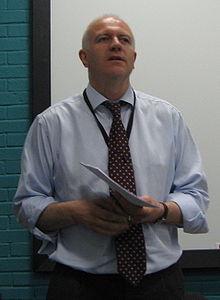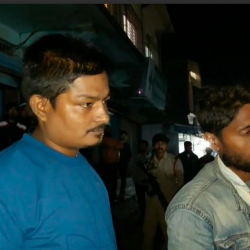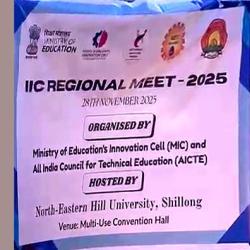A former British Foreign Office Minister has called on the Assamese community in the United Kingdom (UK) to help the government in Assam tackle problems faced by the country.
While addressing the second annual conference of the Assam Forum of Great Britain (AFGB) at the London School of Economics last weekend (Saturday 1 June), Bill Rammell urged delegates to consider the experiences of other countries when formulating their advice for the administration in Dispur.
Mr Rammell, who served under former British prime ministers Tony Blair and Gordon Brown, said: “I want to stress to you that issues such as poverty and terrorism have common histories, common threads, and I hope that in your discussions and debates, you look to initiatives and examples – at home and abroad – as you seek to offer solutions to the Government and others back in Assam.”
The former UK minister, who was introduced to the delegation by the Forum’s Vice Chairman Dr Jayanta Sarma, blamed the present British government for a 30 per cent drop in first-year undergraduates coming to the UK from India and warned this could disadvantage both countries.
“Unfortunately, we are seeing a (British) Government that is confused – and confusing – on the issue of immigration, and in particular overseas students,” said Mr Rammell, who is Vice Chancellor at the University of Bedfordshire. “In my opinion that’s not just a shame and a missed opportunity for those prospective students, but bad for high education in the UK, bad for the UK economy, and bad for that evolving UK-India relationship.”
Immigrations – specifically, illegal migration from Bangladesh – was a key theme of the conference. Dr. Jitendralal Borkakoti, who is Assam Forum's Chairman and Chief Convenor, argued that Assam Accord had been a “complete failure”.
“The Accord did not spell out a robust institutional structure with adequate resources to implement the Agreement’s detect-delete-deport policy and the Illegal Migrants (Determination by Tribunal) Act 1983 that legitimised the Accord which became a hindrance,” said Dr Borkakoti.
“The Asom Gana Parishad Government did not make sure that the issue should be raised with the Bangladesh and in 1985 did not strike when the iron was hot,” he continued. “It is now too late because of the Human Rights Bill, thousands of illegal migrants who have lived for more than 25 years will be difficult to be got rid of.”
Dr Borkakoti suggested that a policy of prevention and assimilation should now be adopted and the Government of India must raise the issue with Bangladesh, something that should have been done 28 years back.
Smitana Saikia, who is currently writing a doctorate around the politics of ethnicity in Assam, argued that a historic lack of an official definition of “Assamese” people is intrinsically linked to concerns over immigration, with many tribal groups feeling their distinct identities are being threatened.
She argued that the lack of provision for “legislative and administrative safeguards to protect the cultural, social, and linguistic identity and heritage” as outlined in the Assam Accord deal of 1985 had led to this identity crisis – a factor during last year’s Bodo-Muslim violence.
Calling for a return to a multi-ethnic society, Ms Saikia said: “Part of this is to have an all-inclusive definition of Assamese – something the Government of Assam still has not done after embarking on this in 2007.”
The meeting, which was overseen by AFGB’s chairman Dr Bhupen Dev Sarmah, also discussed the problems of Assam’s devastating floods.
Dr Rituparna Bhattacharya called for a renewed effort to add Majuli, the world’s largest river island, to the UNESCO World Heritage list. She bemoaned the failure of previous efforts and claimed that one bid had collapsed due to mistakes regarding the paperwork.
Dr Tarun Chowdhury said both the Assam and Indian governments needed to improve flood relief provision and, if necessary, be prepared to ask the outside world for help.
Citing the aftermath of last year’s flood crisis when an estimated 500,000 displaced people were left living in poor conditions, he said: “They [the Assam government] should also put their pride to one side and ask for foreign help as it will save lives.”
- 8235 reads









Add new comment